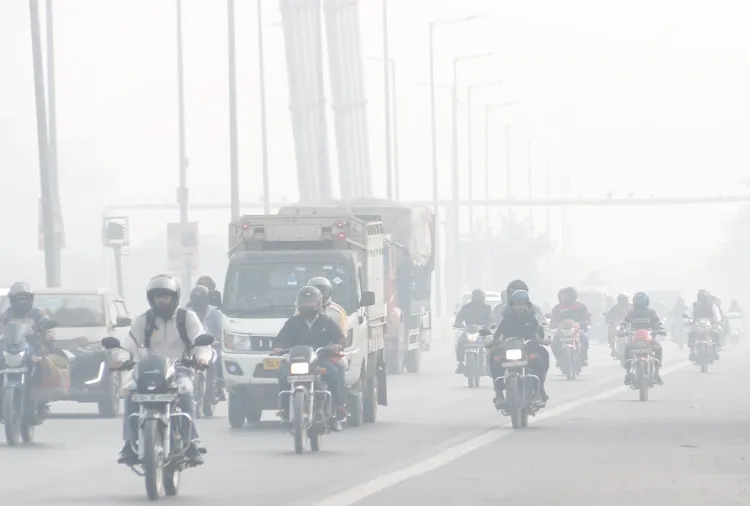Is Pollution Causing Respiratory Illness in Delhi? 68,411 Cases and 10,819 Hospital Admissions in 2024

Synopsis
Key Takeaways
- 68,411 cases of ARI reported in 2024 in Delhi.
- 10,819 hospital admissions linked to respiratory issues.
- Government launched ARI digital surveillance in 2023.
- Data from six major hospitals in Delhi highlights the alarming trend.
- Health advisories are issued annually to combat air pollution effects.
New Delhi, Aug 19 (NationPress) The escalating levels of air pollution are leading to a significant increase in acute respiratory infections (ARI) in the capital, with 68,411 cases and 10,819 hospital admissions reported in 2024, according to the government’s statement in Parliament on Tuesday.
In a written response during the Rajya Sabha session, Union Minister of State for Health and Family Welfare, Prataprao Jadhav, provided insights into the rising air pollution and its link to respiratory diseases in urban environments.
“Air pollution is among the primary triggers for respiratory ailments and related health issues,” Jadhav stated.
The Minister highlighted that the National Centre for Disease Control (NCDC) conducts ongoing surveillance of illnesses related to air pollution through a network consisting of over 230 sentinel surveillance sites across 30 states and Union Territories.
Moreover, in August 2023, the government initiated Acute Respiratory Infection (ARI) digital surveillance via the Integrated Health Information Portal (IHIP).
He presented ARI surveillance data from six sentinel locations in Delhi: AIIMS, Safdarjung Hospital, LHMC Group of Hospitals, RML Hospital, NITRD Hospital, and VPCI Hospital.
The data indicated that in 2022, a total of 67,054 cases were reported to the emergency departments at these six sites, with 9,878 requiring hospital admission. In 2023, the number of cases surged to 69,293, while hospital admissions slightly decreased to 9,727, the Minister noted.
However, Jadhav emphasized that “there is no definitive data in the country to establish a direct link between death or disease and air pollution.”
“The health impacts of air pollution are influenced by a combination of factors, including dietary habits, workplace conditions, socio-economic status, medical history, immunity, and genetic predisposition,” he clarified.
The Ministry of Health also provides annual health advisories regarding air pollution to all states to assist them in preparing for related health challenges at all healthcare levels nationwide.
Furthermore, the health sector’s preparedness and response strategies concerning air pollution and health-related issues, such as Air Quality Index (AQI) reports, are communicated to states to enhance their preparedness and response strategies, the Minister added.










